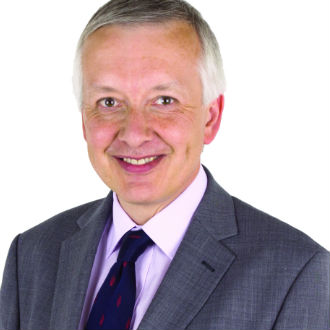From Dr Nick Summerton, a GP in East Yorkshire and a former NICE adviser
Leaders of the junior doctors claimed success for the first day of strike action last week. But at what price?
How many people had their lives and work disrupted last week? What impact will the delays in testing and surgical procedures have had on individuals? How much additional distress has been generated amongst patients who are already anxious?
I strongly believe that going on strike is something that doctors should not do
If the BMA does win in its dispute with the Department of Health I worry that it will be nothing more than a Pyrrhic victory. The toll on the reputation of the medical profession will be tantamount to a defeat.
As a doctor trained in the early 1980s I strongly believe that going on strike is something that doctors should not do. Using patients as ammunition in an argument with any employer – public or private – is simply wrong. Sadly when I expressed this view in an interview last week for Pulse my comments were met with a torrent of abuse from many medical colleagues. Hardly the sort of responses I would usually have expected from a group of professionals.
But what concerns me most about the strike, and the responses I have received, is that it seems to highlight a different set of values held by many younger members of my profession. Do they subscribe to the same principles as those of us trained in the last century? If a patient arrives with a problem 10 minutes before the end of their shift would they look after this person or pass them on? If a relative asks to have a chat in the evening during visiting hours will they be there? If a GP asks for a call back will they bother?
I appreciate that caring for patients in the modern NHS can be challenging – resources and time are limited whereas expectations and technology continue to grow. But, looking after patients in general practice would be so much easier if junior doctors could send me prompt and legible information after a person has been seen or discharged from hospital. My patients also constantly grumble to me that they don’t know who is looking after them when they are in hospital, there is no continuity of care, and families never know who to speak to about their concerns.
Over the last few days I have spoken to a number of consultant colleagues, many of whom seem to share my views about striking. One also outlined the difficulties he now experiences in persuading his junior colleagues to work beyond their shifts, even in extraordinary circumstances. Another suggested that there is a requirement for a balance to be struck between working hours and acquiring clinical experience – tiredness certainly impacts on patient safety, but so does inexperience.
In 1985, as a junior doctor, I was severely reprimanded by my consultant for not calling a GP about one of their patients who had died on his ward. I took the lesson to heart and never made the same mistake again. In contrast when I phoned up a junior doctor myself recently to grumble about the way they had discharged a child who arrived at my branch surgery one afternoon from the hospital very unwell, I did not get an apology and nor did the parents, just a letter telling me off for upsetting this doctor.
Two further strikes are planned. But I do hope my junior colleagues will rethink their strategy and consider the broader consequences for our profession of such ill-considered action.
















